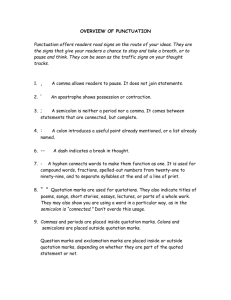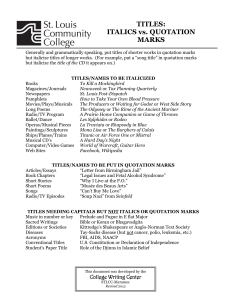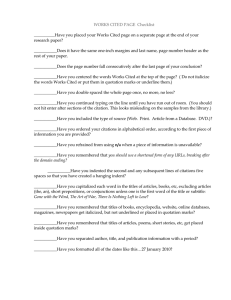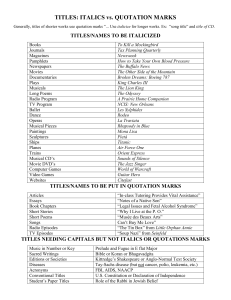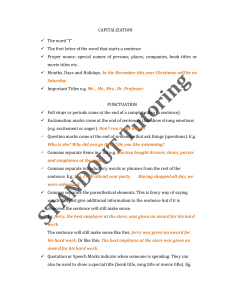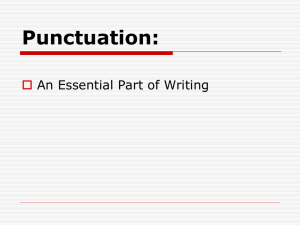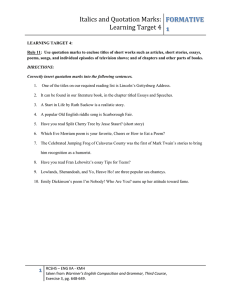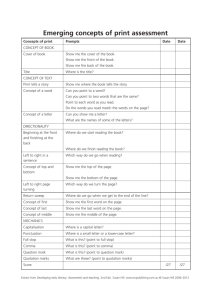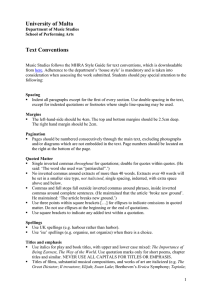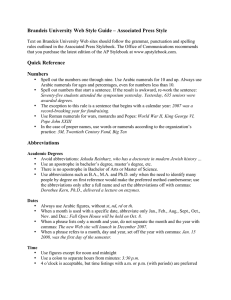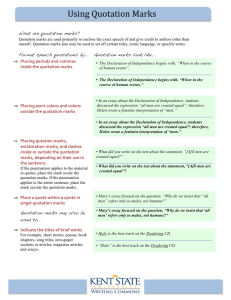Punctuation
advertisement
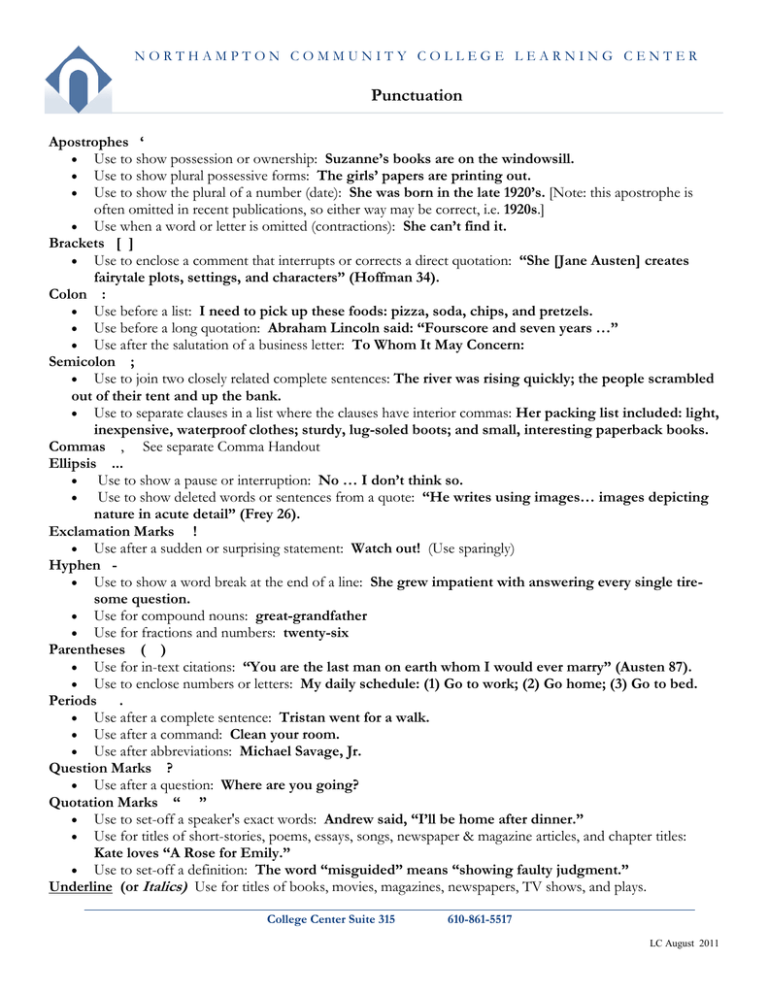
NORTHAMPTON COMMUNITY COLLEGE LEARNING CENTER Punctuation Apostrophes ‘ Use to show possession or ownership: Suzanne’s books are on the windowsill. Use to show plural possessive forms: The girls’ papers are printing out. Use to show the plural of a number (date): She was born in the late 1920’s. [Note: this apostrophe is often omitted in recent publications, so either way may be correct, i.e. 1920s.] Use when a word or letter is omitted (contractions): She can’t find it. Brackets [ ] Use to enclose a comment that interrupts or corrects a direct quotation: “She [Jane Austen] creates fairytale plots, settings, and characters” (Hoffman 34). Colon : Use before a list: I need to pick up these foods: pizza, soda, chips, and pretzels. Use before a long quotation: Abraham Lincoln said: “Fourscore and seven years …” Use after the salutation of a business letter: To Whom It May Concern: Semicolon ; Use to join two closely related complete sentences: The river was rising quickly; the people scrambled out of their tent and up the bank. Use to separate clauses in a list where the clauses have interior commas: Her packing list included: light, inexpensive, waterproof clothes; sturdy, lug-soled boots; and small, interesting paperback books. Commas , See separate Comma Handout Ellipsis ... Use to show a pause or interruption: No … I don’t think so. Use to show deleted words or sentences from a quote: “He writes using images… images depicting nature in acute detail” (Frey 26). Exclamation Marks ! Use after a sudden or surprising statement: Watch out! (Use sparingly) Hyphen Use to show a word break at the end of a line: She grew impatient with answering every single tiresome question. Use for compound nouns: great-grandfather Use for fractions and numbers: twenty-six Parentheses ( ) Use for in-text citations: “You are the last man on earth whom I would ever marry” (Austen 87). Use to enclose numbers or letters: My daily schedule: (1) Go to work; (2) Go home; (3) Go to bed. Periods . Use after a complete sentence: Tristan went for a walk. Use after a command: Clean your room. Use after abbreviations: Michael Savage, Jr. Question Marks ? Use after a question: Where are you going? Quotation Marks “ ” Use to set-off a speaker's exact words: Andrew said, “I’ll be home after dinner.” Use for titles of short-stories, poems, essays, songs, newspaper & magazine articles, and chapter titles: Kate loves “A Rose for Emily.” Use to set-off a definition: The word “misguided” means “showing faulty judgment.” Underline (or Italics) Use for titles of books, movies, magazines, newspapers, TV shows, and plays. College Center Suite 315 610-861-5517 LC August 2011
